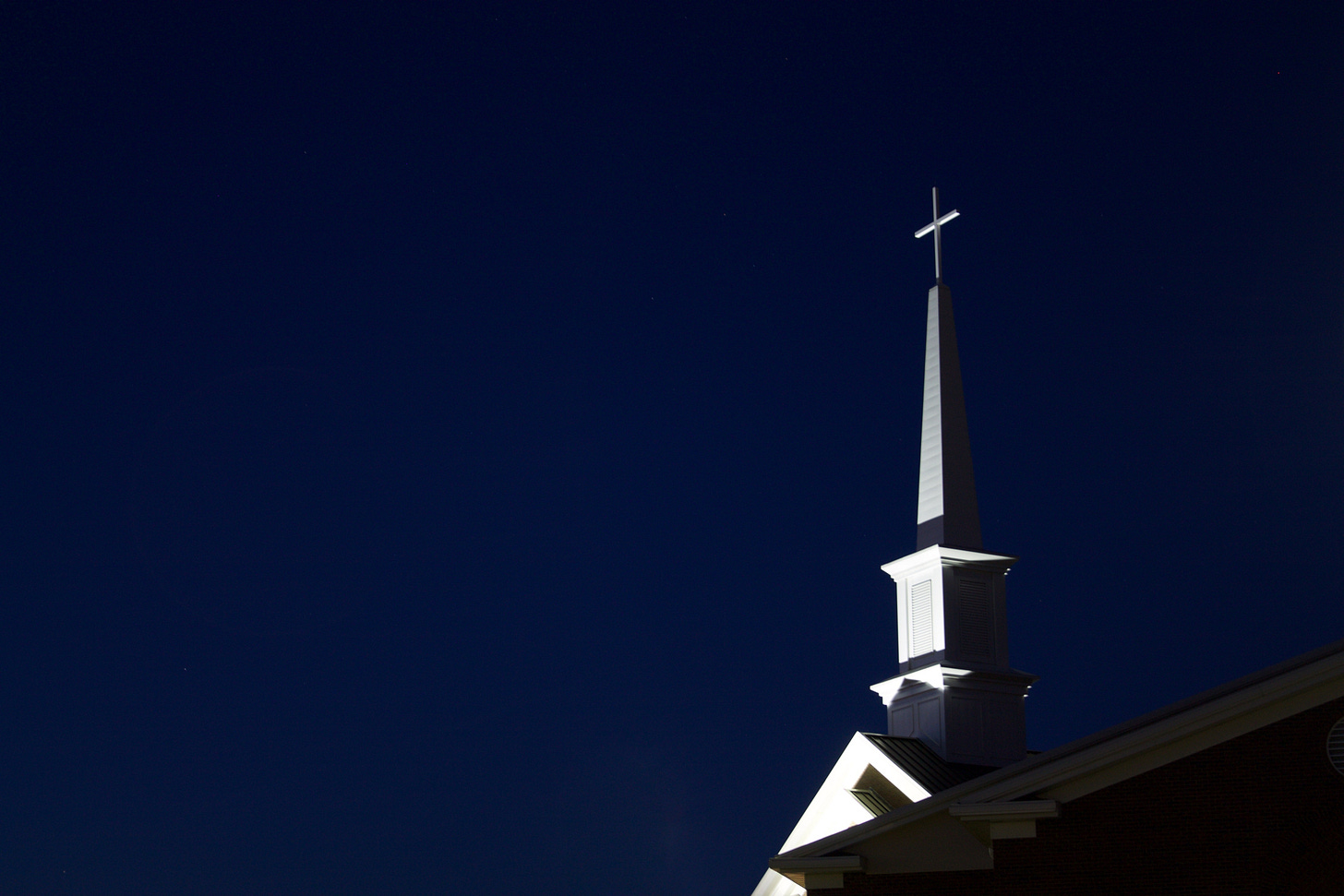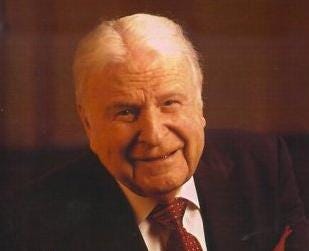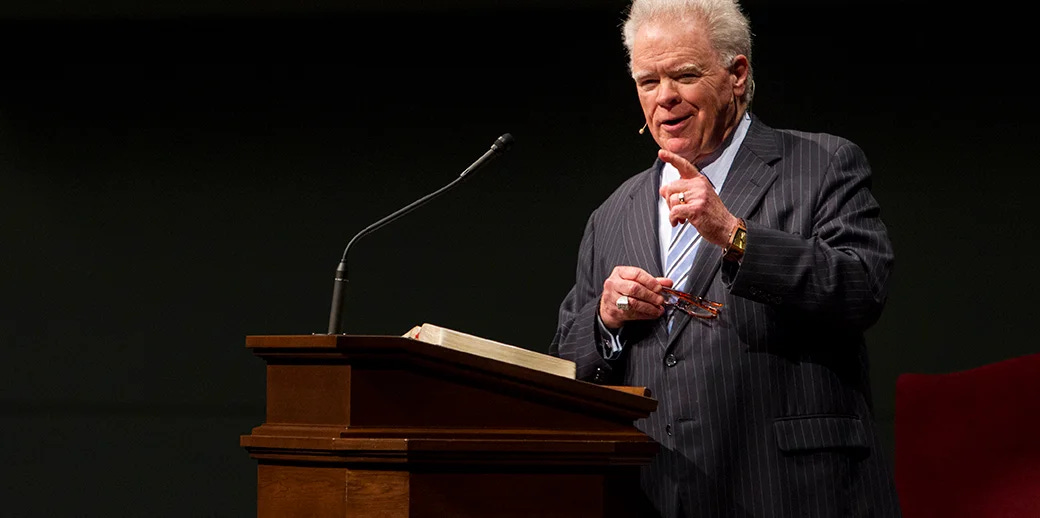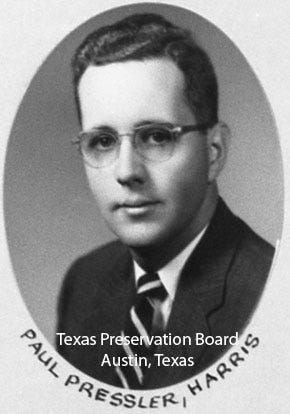The Rise of Reagan and the Religious Right: How Evangelicalism Entered American Politics
A History of Extremism and the Influence of First Baptist Dallas Preacher W. A. Criswell.
Did you see the recent New York Times article: A Four-Decade Secret: One Man’s Story of Sabotaging Carter’s Re-election? I’ve gifted you the piece, but essentially former Texas Lt. Governor Ben Barnes claims that former Texas Governor John Connally JR, a campaign adviser for Ronald Reagan’s 1980 presidential campaign, was involved in that year’s so-called October Surprise. According to the article, Connally allegedly traveled to the Middle East a few weeks before the election to deliver a message to the Iranian leadership on behalf of the Reagan-Bush campaign. The message supposedly conveyed that if Iran held the American hostages until after the election, they would receive a better deal from the Reagan administration than President Jimmy Carter.
While Ronald Reagan was arguably one of America’s worst presidents (in the top three), it can’t be ignored that these new allegations put two Texans at the heart of the Iran hostage crisis, ultimately sinking Jimmy Carter’s re-election.
Barnes was involved in Texas politics for years before the Sharpstown Stock Fraud Scandal ended his political career. Connally, a Southern Strategy party-switcher had a multifaceted past.
All roads lead to Dallas.
Ronald Reagan’s presidency is often linked to the rise of the Religious Right in American politics. Throughout his two terms in office, Reagan courted the support of Conservative Christian voters, recognizing their political power and importance in the Republican Party. This alliance was cemented by Reagan’s vocal opposition to abortion and his support for prayer in public schools, as well as his outspoken Christianity. The merging of Reagan’s presidency and the religious right helped set the stage for the culture wars that continue to plague us.
Abortion bans, prohibiting the teaching of Black history, and attacking the LGBTQ community are all rooted in Evangelicalism. The merger of religion and Conservative politics was another facet of Reagan’s election, which began in Texas.
The Moral Majority? Yes, there was that. But Jerry Falwell and Paul Weyrich weren’t the only religious fundamentalists pushing Evangelicalism into our politics. While Falwell and Weyrich took the political path to implement religion into politics, another group of men took the religious path to implement politics into religion. This is their story.
A preacher of hellfire and brimstone.
In 1944, W. A. Criswell became the pastor of First Baptist Church in Dallas, remaining until he died in 2002. He was president of the Southern Baptist Convention and later became an instrumental part of the fundamentalist takeover of that Convention.
Criswell was also an avid racist and believed that religion should influence politics. Hear what he said about Martin Luthe King in 1967:
First Baptist Church, located in the heart of Downtown Dallas, has long been known as one of America’s most influential Evangelical churches. However, it was Criswell who solidified that reputation.
Nowadays, we would call Criswell an extremist or perhaps even a nut. But decades before the internet existed, Criswell was repeatedly given a platform and amplified.
W. A. Criswell had a direct relationship with Ronald Reagan, attacked Jimmy Carter from the pulpit, and helped Republicans usher in the culture wars.
Criswell wasn’t a polarizing figure early in his career, it wasn’t until the Brown v. Board decision in 1954 that Criswell took a hard stance against segregation. In a joint event with the famed-Dixiecrat Strom Thurmond, Criswell gave an entire sermon about how great he thought segregation was. This sermon made national news and infuriated Black Baptists. While that sermon haunted First Baptist Dallas for decades, it also catapulted Criswell to political fame.
During the McCarthy Era and at the height of the Second Red Scare, Criswell blamed communists for the backlash but stood his ground that he would never like to be in a segregated church. He was also against evolution. And when a young Catholic from Massachusetts ran for president, Criswell became increasingly political.
In 1960, First Baptist Dallas was the largest white Baptist congregation in the nation, with 12,000 members. One Sunday morning in July, he said on the pulpit, “If Kennedy is nominated and elected, it will inevitably open the door for a United States ambassador to the Roman Catholic Church, tax support for Catholic schools, and finally, the Roman Catholic Church above all others.”
Reactionary Conservatives always have a boogeyman. In July 1960, it was Catholics; in March 2023, it is the LGBTQ community.
Criswell’s speech was printed in a pamphlet and distributed to hundreds of thousands. Dallas in the 1960s was a hotbed for hate, as the largest chapter of the John Birch Society called Dallas home. John F. Kennedy was widely hated in Dallas. After his assassination, many were unsurprised by the city of his murder. Although, it turned out that the killer was a communist from Louisianna and not an Evangelical madman.
The papers called Criswell “the Dixiecrat Preacher” after his attacks on Kennedy and led to a Congressional investigation. What Criswell was doing was using his religious influence and large platform to tell people how to vote. While we often see viral preachers on social media talk about killing gay people or some other outrageous sentiment, politicking from the pulpit is still seen as controversial. In the 60s, it was even more offensive.
Southern Baptist Convention.
Last year, a scandal rocked the Southern Baptist Convention (SBC) as the history of sexual abuse in the SBC and detailed decades of gaslighting and cover-ups. Long before the SBC was known as another religious organization that churns out sexual predators, they were led by and had ties with W. A. Criswell and the proteges he produced.
In 1961, the SBC put out a resolution demanding a complete separation between church and state. Criswell missed that particular convention due to illness. However, only seven years later, Criswell was appointed as the president of the Southern Baptist Convention. He held that position from 1968 to 1970.
As President of the Southern Baptist Convention, Criswell launched an anti-liberal crusade to eliminate liberal thinkers from the church. His campaign in the late 60s wasn’t successful, but little did anyone know then, only ten years later, another SBC scandal would fundamentally change the meaning of “Southern Baptist” forever. That scandal would come directly from Criswell’s disciples.
W. A. Criswell’s right-hand man.
Paige Patterson began preaching at big-tent revivals when he was only 16 years old. Patterson’s father, T. A. Patterson, was also a preacher and heavily involved in the Southern Baptist Convention.
Patterson was the pastor of several churches before landing a job at Criswell College and becoming W. A. Criswell’s right-hand man.
If Patterson’s name sounds familiar, he’s been in the news recently. A few weeks ago, the charges against Patterson related to the current sex abuse scandal in the SBC were dismissed. It was alleged that Patterson had known about the sexual abuse taking place inside the church and worked to cover it up and intimidate victims.
Long before the current-day Southern Baptist Convention scandal, in 1979, Patterson and another man orchestrated a Conservative takeover, with W. A. Criswell playing puppet master behind the scenes.
A legislator, a judge, and a religious fanatic.
As Patterson began preaching as a teenager, Paul Pressler, from Houston, Texas, began his career in politics while only a teen. In 1956, at only 26 years old, Pressler was elected to the Texas House of Representatives. He was a Democrat back then; all of the Conservatives were, but he later became a Republican after the South lost on segregation. Pressler ran his election on a pro-segregation platform, saying that legislators should protect school districts that wanted to keep segregation.
As far back as 1967, Pressler was involved with Boys Town and called himself a “conservative orthodox.” In 1970, Texas Governor Preston Smith appointed Pressler as 133rd District Judge. Like other Conservative Baptists, Paul Pressler attended prayer breakfasts and gave anti-communist speeches.
The 1970s heated up the merger between religion and politics.
While in 1971, Criswell publicly proclaimed to have changed his mind about allowing Black people in his church, many of the things he said and did infer he was still a man of hate.
In 1971, President Richard Nixon invited W. A. Criswell to the White House at the suggestion of First Baptist Dallas parishioner Billy Graham. Early on, Criswell became a loud supporter of the colonization of Israel, a stance that many Evangelicals still support today.
And by 1972, Criswell was intricately involved in the “Texans for Nixon” campaign. Criswell and Billy Graham teamed up in the early 70s, teaching others how to spread Evangelicalism. The theme for one conference they held was about “making disciples.” And make disciples, they did.
Although Criswell’s disciples, Patterson and Pressler, would do the most damage leading up to the 1980 presidential election, they took their cues from Criswell and his hatred toward political figures.
By 1975, Criswell’s message had become sharper and more targeted. His plan was to win America through the church. While he once claimed that First Lady Betty Ford had a gutter-type mentality, that didn’t stop him from making a commercial for President Gerald Ford in 1976.
Gerald Ford even flew down to Dallas to listen to Criswell speak and endorse him from the pulpit. Criswell’s endorsement of Ford carried a lot of weight in the Southern Baptist community. Although Jimmy Carter was from the South, Criswell was angered by an interview Carter did in Playboy Magazine. And he made a lot of noise about it.
Reprimands of Criswell poured into Texas newspaper’s “Letters to the Editor” sections, and anger sparked over the lack of separation between church and state. Even those in the SBC blasted Criswell’s politicking from the pulpit.
Gerald Ford lost that election. However, Criswell again attracted national attention for all the wrong reasons. He built the reputation of First Baptist Dallas as a politically conservative church that blurred the lines between religion and politics. A reputation First Baptist Dallas still holds today.
In comes the Moral Majority.
The Story of the Moral Majority and how they came to be is a story for another day, but the overlap of the Moral Majority in Texas and the Southern Baptist Convention cannot be denied.
The goal of the Moral Majority was to get Evangelicals behind John Birch politics and to align them with big oil and big business. Texas was known for big oil politics, even back then. And H. L. Hunt, one of the biggest oilmen in 1970s politics, was a First Baptist Dallas parishioner and a close friend of W. A. Criswell.
Texas was the first state where the Moral Majority set up shop.
The 1979 Southern Baptist Convention.
According to this 2004 article by the Associated Press, Reverand Jimmy Allen thought the annual Southern Baptist Convention would giant rally at the Astrodome featuring Billy Graham. Instead, he and other moderate leaders were caught by surprise as Conservatives who attacked “liberalism” flocked to the meeting.
As it turned out, Paul Pressler and Paige Patterson orchestrated and led a takeover of the SBC. Leading up to the convention, the Criswell disciples hatched a planned and recruited messengers to spread their word.
Baptists were in trouble because of liberal seminary professors who question the bible’s inerrancy.
The problem could be fixed by electing a conservative president to the SBC who would use their authority to remove moderate Baptist seminaries.
They urged all Conservative Baptists to travel to Houston and vote with them.
It was a coup led by men who believed every single word of the Bible was real and should be followed to a T. A belief they learned from Criswell, a Biblical Literalist.
While biblical literalism has had followers for hundreds of years, most Christians consider metaphoric and symbolic meanings. However, Criswell believed that the Bible, in its original manuscripts, is complete without error or fault in all that it affirms, whether related to matters of faith, history, science, or any other subject. The doctrine of inerrancy asserts that the Bible is the authoritative and inspired Word of God and is, therefore, completely trustworthy and accurate.
When his disciples, Patterson and Pressler, orchestrated their coup, they drew a line in the sand. “Either you believe the bible or you don’t.” Buses and cars full of people showed up at the Astrodome, all there to support Patterson and Pressler’s takeover.
They were successful. They elected a new Conservative SBC President, Reverend Adrian Rogers. Rogers participated in the advancement of a conservative political agenda in the United States. He stated that Christians have a duty to be involved in government.
Under Roger’s leadership, he moved the SBC in a more conservative direction but also shifted Southern Baptists politically in the direction of the Republican Party.
Ronald Reagan.
Undoubtedly, Reagan, the opportunist he was, saw the marriage of religion and politics as a chance to take the White House. And he knew a lot of that began in Dallas.
Here is a campaign speech he did in Dallas with W. A. Criswell in attendance about religious liberty:
In 1980, Evangelicals campaigned to Conservatives to get them to vote. And the Moral Majority registered church-goers.
Now.
Ben Barnes wanted to clear his conscience before Jimmy Carter’s passing regarding his role in electing Ronald Reagan in 1980. While there’s no doubt that the Iran Hostage Scandal played a part in the election of the most destructive president in the 20th Century, it was just a small piece of the bigger picture.
The consequences of W. A. Criswell’s overlapping of religion and politics and Ronald Reagan’s election are still being felt today as Republicans continue on their path of John Birch politics and love for big oil and big business. However, the fight for justice and equality never ends. The tide will turn one day, and our country will finally be able to move forward.






The best article I have ever read on the topic of religion and politics. I had no idea how big the role of Dallas FBC was involved. Great work!